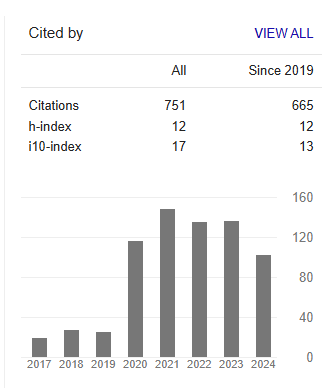Outpatient Care and Short Hospitalization for the Elderly Patient with Inguinal Hernia
Abstract
Pedro Rolando Lopez Rodriguez, Eduardo Garcia Castillo, Olga Caridad Leon Gonzalez, Jorge Agustin Satorre Rocha, Luis Marrero Quiala
Introduction: The surgery of hernial disease of abdominal wall and especially of the inguinofemoral hernia has increase but in fact its prevalence is unknown. The objective of present study was to assess the result of surgical treatment of the inguinofemoral region hernia in third-age patients seen in the "Dr. Enrique Cabrera" Teaching General Hospital.
Methods: A study was conducted in 2186 third-age patients operated on of inguinofemoral hernia from January, 2000 to December, 2020 in the above mentioned hospital. In all cases patients had the alternative to be operated on in ambulatory way or with a short hospital stay. Also, were included the patients operated on as an urgency. From the patients operated on in an elective way were excluded those suffering of associated, cardiopulmonary or thromboembolic ASA-III type diseases (classification of the American Society of Anesthesiology).
Results: The great incidence of the inguinal hernia was found in ages from 60-69 years (59,3%). The indirect right inguinal hernia was the more frequent. The Desarda's anatomical surgical technique was the more applied one in the inguinal hernia and theLichtenstein's prosthetic technique with the 32% was the following in frequency. There were 20 relapses (0,9%). Local anesthesia was applied in the 75,4% of patients, in ambulatory way in the 76,4%. The total of complications was of 78 (7,1%).
Conclusions: The surgical treatment of inguinofemoral hernias, ambulatory or with a short hospital stay is a suitable procedure in third-age patients since to increase the comfort of patients, to decrease the hospital infection risk, to reduce the waiting lists and the hospital costs.



